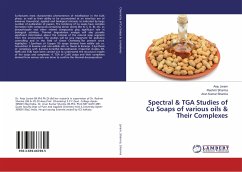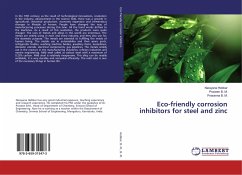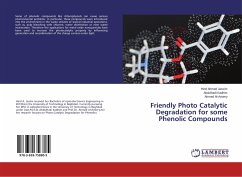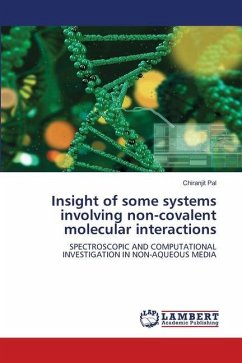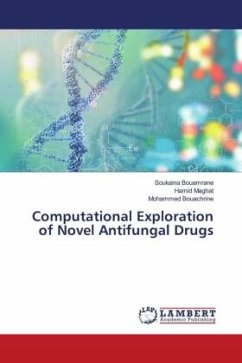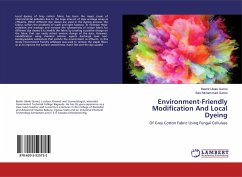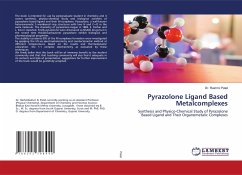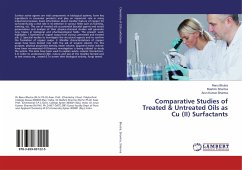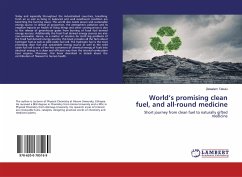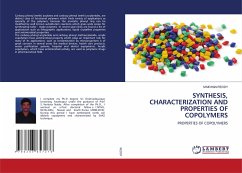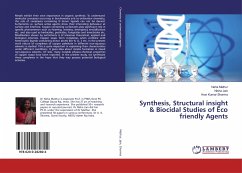
Synthesis, Structural insight & Biocidal Studies of Eco friendly Agents
Versandkostenfrei!
Versandfertig in 6-10 Tagen
47,99 €
inkl. MwSt.

PAYBACK Punkte
24 °P sammeln!
Metals exhibit their own importance in organic synthesis. To understand molecular processes occurring in biochemistry and co-ordination chemistry, the role of complexes containing N donor ligands can not be denied. Surfactants i.e. surface active agents show their interesting behaviour at surface and interface. Copper containing surfactants play significant role in specific phenomenon such as foaming, wetting, detergency emulsification etc. and also used as herbicides, pesticides, fungicides and insecticides etc. Micellization shown by surfactants is of immense theoretical, applied and biologi...
Metals exhibit their own importance in organic synthesis. To understand molecular processes occurring in biochemistry and co-ordination chemistry, the role of complexes containing N donor ligands can not be denied. Surfactants i.e. surface active agents show their interesting behaviour at surface and interface. Copper containing surfactants play significant role in specific phenomenon such as foaming, wetting, detergency emulsification etc. and also used as herbicides, pesticides, fungicides and insecticides etc. Micellization shown by surfactants is of immense theoretical, applied and biological interests. Copper soaps form complexes when combine with heterocyclic ligands containing donor atoms like N, O, S etc. In the present work nature of complexes of copper palmitate in different non-aqueous solvents is studied. This is quite important in explaining their characteristics under different conditions. It gives idea about micelle formation in mixed non-aqueous solvents. Of late,many notable physico-chemical properties of copper soaps have been reported. In the present study, we synthesize these complexes in the hope that they may possess potential biological activities.



